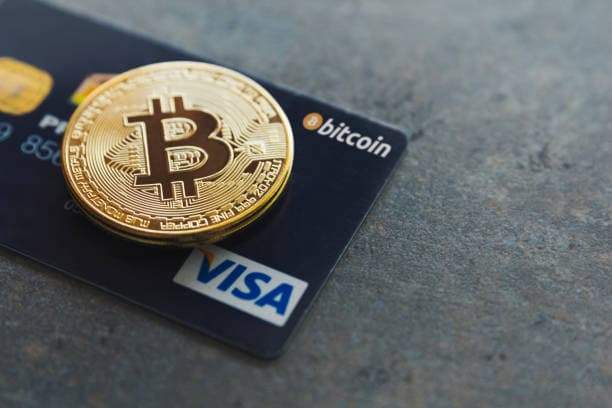Bitcoin Wallet Backup: How to Protect Your Digital Assets
In today's world of digital currencies, Bitcoin is the leader and has attracted a lot of attention from investors and enthusiasts. With the popularity of Bitcoin, how to protect your Bitcoin assets has become a key issue for every user. Backing up your wallet is an important step in protecting your digital assets, and the right backup method can maximize the security of your Bitcoin in case of accidental loss or attack. In this article, we will discuss how to effectively back up your Bitcoin wallet and how to choose the safest backup method to prevent potential risks and ensure your digital assets are protected from loss.

Why is Bitcoin wallet backup so important?
For Bitcoin holders, wallet backup is the foundation of asset security. If your Bitcoins are stored in a digital wallet, the risk of loss or hacking cannot be ignored. The purpose of a backup is to ensure that if your equipment fails, is attacked, or is lost, you will still be able to recover your Bitcoin assets. A wallet backup usually involves keeping the wallet's private key or recovery seed word safe, and in the event that you lose your device, these backups can help you regain control of your assets.
Backups are the first priority in protecting Bitcoin assets. Without a backup, losing the private key to your wallet is tantamount to losing control of your assets. Bitcoin blockchain technology is inherently decentralized, which means that no Bitcoin transaction can be reversed and no lost private key can be recovered. Therefore, the reliability of the wallet backup is of paramount importance.
How do I back up my Bitcoin wallet?
There are two basic ways to perform a backup of your Bitcoin wallet: backing up your private key and backing up your recovery seed word. The private key is the only digital certificate that controls your Bitcoin assets, while the recovery seed word consists of a set of randomly generated words that can help you recover your wallet if needed.
Backup Private Key: A private key is a password used to sign transactions and is the only password that controls the Bitcoin wallet. There are many ways to back up a private key, the simplest is to record the private key and store it in a safe place, such as a paper backup or a hardware wallet. Paper backups can usually print the private key and store it in a fireproof, waterproof place just in case.
Backup Recovery Seed Words: Recovery Seed Words (usually 12 or 24 words) are a commonly used backup method for modern Bitcoin wallets. These words are composed of randomly generated words that can help you recover the contents of your wallet in case of loss or damage to your equipment. When backing up your recovery seed words, it is recommended that you copy them on paper and keep them in a safe place, and avoid storing them on the Internet to prevent them from being stolen by hackers.
How do I ensure the security of my backups?
The security of Bitcoin is highly dependent on the protection of your wallet backup. If your backup information is accessed by someone else, it could lead to Bitcoin theft. Therefore, it is important to ensure the security of your backups. Below are some specific suggestions to enhance the security of your wallet backup:
Distribute backup locations: Don't keep all your backup information in one place. You can store your paper backups in separate locations, such as at home, in a bank safe, or with friends and family. This way, your backup information will not be completely lost in the event of a fire, earthquake, or other disaster.
Using Hardware Wallet: Hardware Wallet is a highly secure backup tool. It stores private keys in a device and runs offline, which effectively protects against attacks from the Internet. Common hardware wallet brands such as Ledger and Trezor provide additional security.
Encrypted backup data: If you choose to digitize your backup data, for example on a USB hard drive, it is important to encrypt the backup. This way, even if the hard disk is stolen, the data is still encrypted and cannot be easily decrypted.
How to choose the most suitable backup method?
Choosing the right backup method for your Bitcoin wallet will depend on your usage needs and security requirements. If you are new to Bitcoin, you may want to start with paper backups and seed recovery. These methods are simple and inexpensive, but they do come with some risks. For more experienced users, using hardware wallets and encrypted backups may be a safer option.

Beginners: For most beginners, the easiest backup method is paper backup or restoring seed words. Keeping the restoration glossary in a safe place and avoiding sharing it with others can be an effective way to keep your assets safe.
Advanced Users: If you hold large amounts of Bitcoin or other cryptocurrencies, it is recommended to use a hardware wallet for backup. Hardware wallets offer higher security and are protected against online attacks. Combining multiple backups, decentralized storage of private keys and recovery of seed words will greatly reduce the risk of asset loss.
How to Recover Lost Bitcoin Wallet?
Regardless of the backup method you choose, it is also important to know how to recover a lost Bitcoin wallet. If you find that your Bitcoin wallet cannot be opened or is lost, you can regain control of it by recovering the seed word. Most Bitcoin wallets (including desktop, mobile, and hardware wallets) offer recovery.
Recover your wallet using recovery seed words: Open your Bitcoin Wallet application, select the "Recover Wallet" option and enter your recovery seed words. These words will help you rebuild your wallet and recover all your assets.
Contact Support: If you are unable to retrieve your wallet by recovering the seed word, you can try contacting your wallet provider's customer service department. Many wallets have dedicated support teams that can help you with this.
Frequently Asked Questions Q&A
Q1: Can I back up my Bitcoin wallet to the cloud?
A1: Although storing backups in the cloud provides easy access, doing so poses a security risk, as cloud services may be subject to hacking or data leakage. Therefore, it is best to avoid storing private keys or recovery seed words in the cloud.
Q2: Can I get my Bitcoin back if I lose my Seed Recovery Word?
A2: If you lose the recovery seed word and have no other backups, you will not be able to retrieve your Bitcoins. This is why it is important to be very careful when backing up the Recovery Seed Word.
Q3: How do I protect my hardware wallet from theft?
A3: The best way to protect your hardware wallet is to store it in a secure location and encrypt it. When conducting transactions, only connect your hardware wallet to a trusted device and avoid using it in an insecure environment.
By understanding and practicing proper Bitcoin wallet backup methods, you can effectively protect your digital assets from unnecessary losses.














